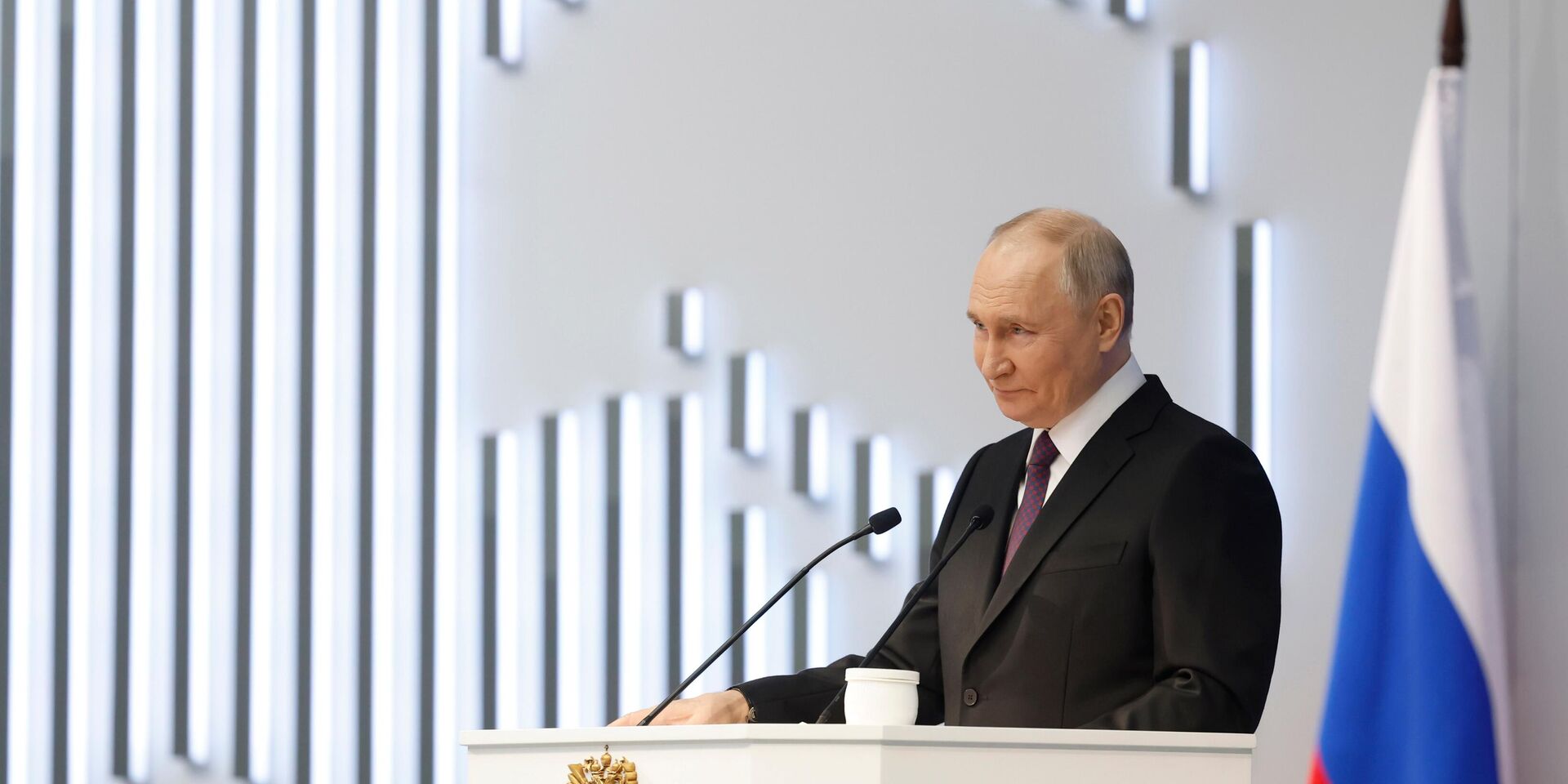The Spectator: in his message to the Federal Assembly, Putin spoke about the future of Russia
The message to the Federal Assembly provides an opportunity to assess Vladimir Putin's priorities and attitude, writes The Spectator. It was, in fact, the election speech of the Russian leader and the country's development program until 2030.
Mark Galeotti
Vladimir Putin's annual address to the Federation Council (the upper house of the Russian parliament) rarely turns out to be an exciting event, but it provides an opportunity to assess his attitude and priorities. This year, the president delivered a two—hour, largely pre—election, speech in which he did not mention the upcoming March vote at all.
At first, he repeated the theses already familiar to everyone regarding the special military operation in Ukraine. That he was forced to start it because of the "Nazi" regime in Kiev and the hostility of "the so-called West with its colonial habits, the habit of fomenting national conflicts around the world, [which] seeks not just to restrain our development – instead of Russia, they need a dependent, fading, dying space where they can do anything anything." And that his decision was "supported by the absolute majority of the Russian people."
To make it more convincing, he backed up what he said with threats, bravado and boredom about the latest weapons systems that he promised in the past, starting with the Kinzhal hypersonic missile (which turned out to be easier to shoot down than everyone thought) and ending with the Peresvet laser complex (which, it seems, has not yet been used at the front). The idea of deploying NATO troops in Ukraine voiced by French President Emmanuel Macron gave Putin the opportunity to issue a similar ritual warning: "They must eventually understand that we also have weapons — yes, they know about it, I just said — that can hit targets on their territory."
However, all this took no more than fifteen minutes at the beginning of the speech, and then Putin moved on to talk about the future. A technocratic presentation followed, accompanied by PowerPoint slides, about the transformation of Russia into the promised land.
From threats of nuclear war ("Strategic nuclear forces are in a state of full readiness for guaranteed use") Putin quickly moved on to claims that "we choose life" and that Russia, being "a stronghold of traditional values on which human civilization is built," encourages citizens to create large families, which will be facilitated by benefits and multibillion-dollar support for large families in the regions.
In addition, promises were made to help the poor, increase life expectancy through health programs, investments in an innovative economy, new university campuses and regional development projects. By 2030, the average life expectancy should increase from the current 73 to 78 years, the minimum wage should almost double to 35 thousand rubles, and the number of young people aged 20-24 years — from 7.3 to 8.3 million.
But why 2030? Here lies the message of the whole speech. Presidential elections will be held in Russia on March 15-17, and the winner will remain in power until 2030. In other words, Putin delivered, in fact, an election speech, although the only elections he mentioned concerned the United States.
This is part of his overall strategy. The President decided to abandon the risky option of holding elections under the auspices and with an emphasis on military operations, since this topic worries many Russians. It is more convenient to use the topic of the existential struggle against the hostile West to justify and explain their current steps, and to minimize the discussion of real hostilities in Ukraine by focusing on praising "genuine patriots" — military personnel.
The entire program until 2030 is aimed directly at those groups of voters that form the basis of Putin's electoral base: pensioners, veterans, large families and state employees (employees of federal and local authorities), who were promised new benefits and payments. It is unclear how accessible this will be (at the same time as infrastructure development and regional "alignment"), especially given that 40% of the federal budget is spent on military purposes. In any case, election promises are always and everywhere based on unfunded commitments and unrealistic promises.
In addition, optimists may wonder if the focus on 2030 is not a hint of Putin's thoughts about resigning, rather than a new term. Of course, everything will depend on the state of his health. It should be noted that the president, who wants to bring the average life expectancy to 78 years by 2030, will turn 78 this year.

